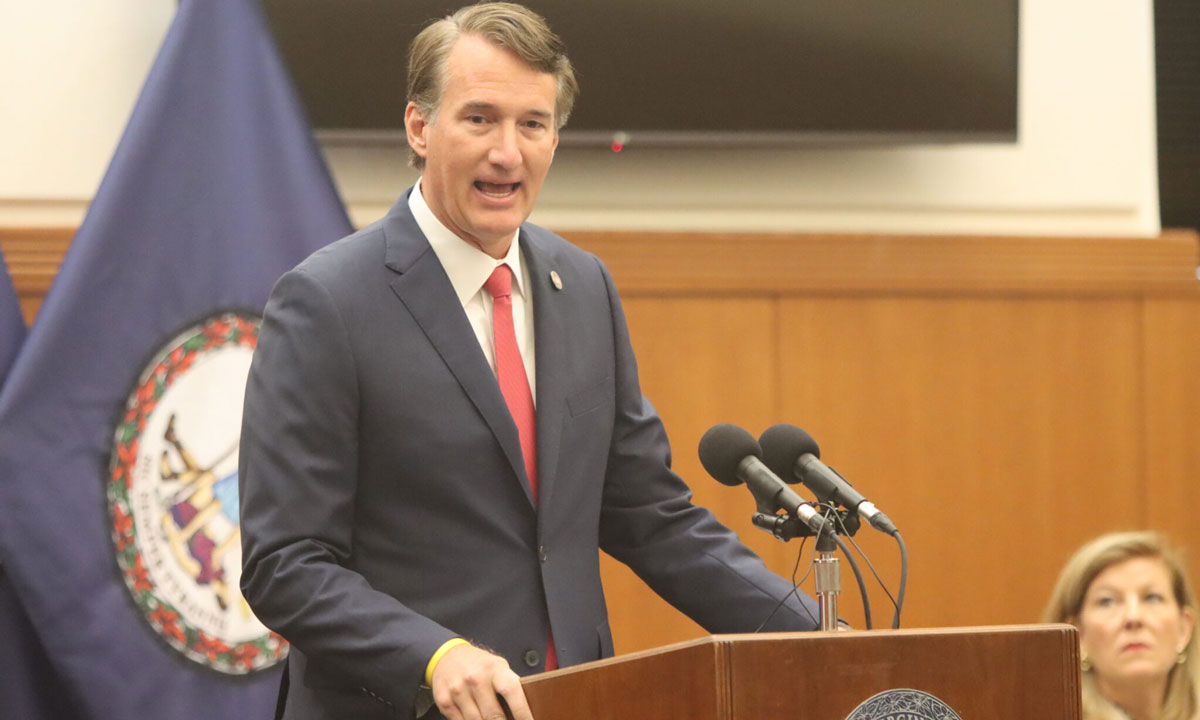Youngkin Issues Order Aimed at Requiring Schools to Notify Parents of Overdoses
The executive order requires school divisions to contact parents within 24 hours of school-connected overdoses.

Get stories like this delivered straight to your inbox. Sign up for The 74 Newsletter
In the wake of multiple opioid overdoses in a single school division, Virginia Gov. Glenn Youngkin issued an executive order Wednesday evening directing the Department of Education to issue guidance ensuring school divisions notify parents of school-connected overdoses within 24 hours.
The order also directs the state to issue guidelines on how school divisions should work with law enforcement to prevent drug overdoses and increase awareness of drugs in schools.
In the order, the administration pointed to nine opioid overdoses involving students enrolled in Loudoun County Public Schools that it says occurred in October 2023 alone and criticized the division for having “reportedly waited more than 20 days to inform parents despite clear evidence of numerous incidents of overdose.”
“Parents have a right to know what’s going on in their child’s lives, especially in schools. Overdoses that occur on school grounds or are connected to the school must lead to an immediate parental notification,” said Youngkin in a statement. “School administrators’ first instinct when there is a problem cannot be to delay relevant information on critical children’s health and safety matters — it must be passed on to parents immediately.”
In a lengthy statement posted on the division website Wednesday, Loudoun County Public Schools Superintendent Aaron Spence said the district has had 10 suspected overdoses across six high schools during the current school year and has processes in place for screening students for drug use.
“This number is concerning and distressing, and we will do everything in our power to ensure this does not continue,” Spence wrote. “Please know that we take this issue seriously.”
He also said that “every time we become aware of suspected drug use or an overdose in our schools, we work directly with our parents and with the Loudoun County Sheriff’s Office to investigate and address the incident.”
Opioid overdoses and deaths have been on the rise in Virginia. According to the Virginia Department of Health, an average of seven Virginians died of a drug overdose every day in 2021. Between 2020 and 2021, the number of overdose deaths increased by 29% based on the latest data.
Virginia school districts have also increasingly struggled to deal with overdoses, which claimed the life of one Arlington student in January. In 2019, Virginia passed a law allowing schools to administer naloxone, a medication used to reverse opioid overdose.
In May, the governor signed Executive Order 26 to create a “comprehensive” strategy to combat fentanyl and opioid abuse. Among other measures, that order created a special adviser to the governor on opioid response, and directed the executive branch to seek proposals for purchasing naloxone kits to combat active overdoses and develop a plan to provide support to guardians of children whose parents had passed away from a drug overdose.
Youngkin has been vocal during his term about the dangers of fentanyl, and Wednesday’s executive order also taps into his long-running messaging on parents’ rights, which was widely seen as having helped land him in the Executive Mansion in 2021 and which Republicans are hoping will help them take full control of the General Assembly in Tuesday’s elections.
“When Republicans say ‘parents matter,’ it’s not just lip service,” said House Speaker Todd Gilbert, R-Shenandoah, in a statement. “Parents should and must be involved in every aspect of their children’s education, especially in matters of safety. It shouldn’t require an Executive Order to ensure that parents are told when a child overdoses on a dangerous drug at school. Should the voters of Virginia see fit to give us another two years in charge of the House of Delegates, legislation mandating this parental notification will be a top priority for our caucus.”
Exactly how divisions should balance the need to inform parents of broader drug problems with student privacy concerns remains murky. Youngkin’s order indicates notification requirements should also “ensur[e] protection of student privacy.”
Some school divisions in other states have been wary about releasing information about individual overdoses because of student privacy restrictions in the federal Family Educational Rights and Privacy Act, or FERPA, as WUSA has reported.
The U.S. Department of Education has noted that “in some situations, school administrators may determine it is necessary to disclose personally identifiable information … from a student’s education records to appropriate parties in order to address a health or safety emergency.” Those disclosures, according to the agency, “must be related to an actual, impending, or imminent emergency, such as a natural disaster, a terrorist attack, a campus shooting, or the outbreak of an epidemic disease.”
Get stories like these delivered straight to your inbox. Sign up for The 74 Newsletter

;)